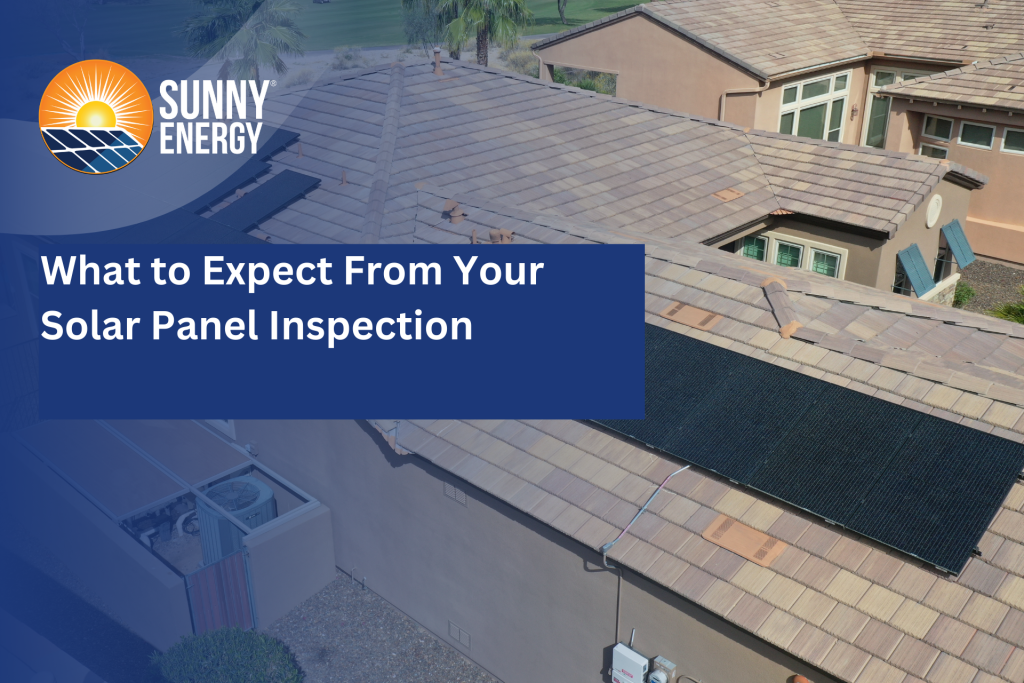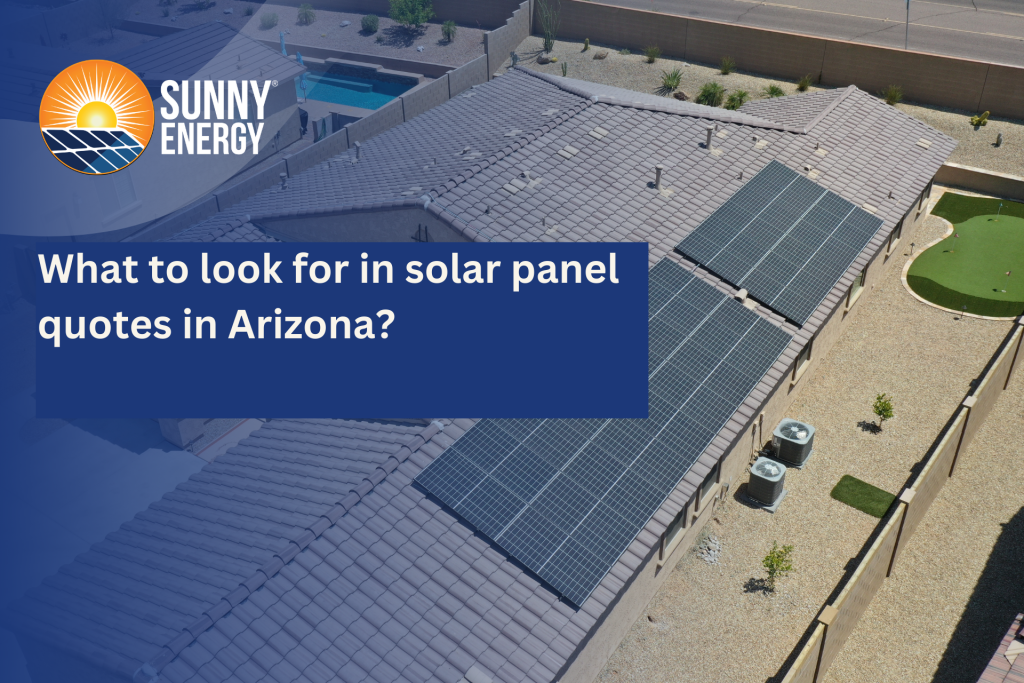While switching to solar energy seems easy, it’s quite tricky for homeowners to calculate how many solar power panels are needed due to various factors such as energy consumption patterns, roof space, and sunlight conditions.
In this blog we will talk about how many solar panels homeowners need, calculate solar power, and how Sunny Energy a leading Arizona solar company can help you install solar panels.
Factors you should know before you calculate solar power
Calculating the number of solar panels needed involves several factors:
1. Your home’s average energy requirements:
This refers to the typical amount of electricity your household consumes over a given period, often measured in kilowatt-hours (kWh). To determine this, review your past energy bills, considering seasonal variations and changes in your lifestyle. For instance, some homeowners go solar to run their AC cooler in the hot summer months, which increases energy usage that should be accounted for when determining panel needs.
2. Current energy use in kilowatt-hours (kWh):
Your electricity bills provide valuable data on your current energy consumption. The kWh usage is a key metric to understand how much energy your household requires daily, monthly, or annually. This is a baseline for sizing your solar panel system.
3. Climate and sunlight in your area:
The amount of sunlight your location receives plays a crucial role in solar energy production. Arizona, known for its abundant sunshine, is particularly favorable for solar power generation. Consider the climate conditions and the average number of sunlight hours per day in your specific region to estimate the solar potential.
4. Efficiency of the solar panels under consideration:
Solar panel efficiency measures how well a panel converts sunlight into electricity. Higher efficiency panels generally produce more electricity for a given surface area. When selecting solar panels, consider their efficiency ratings to ensure optimal energy conversion and maximize the power output of your system.
5. Physical size of the solar panels:
The physical dimensions of solar panels are essential when determining how many can fit on your rooftop or available installation space. The size of the panels, combined with their efficiency, influences the overall capacity of your solar system.
6. Roof tilt and orientation:
The tilt and orientation of your roof significantly impact solar energy production. Ideally, panels should be positioned to receive the most direct sunlight. Proper orientation can affect solar energy production by as much as 50%.
How many solar panels do you need?
Before embarking on your solar energy journey, it’s crucial to understand your home’s energy requirements. To calculate solar power needed, following factors affect a homemakers decision making:
1. Your home’s average energy requirements:
This refers to the typical amount of electricity your household consumes over a given period, often measured in kilowatt-hours (kWh). To determine this, you may review your past energy bills, considering seasonal variations and changes in your lifestyle. You also should think about what adding solar might do to your energy consumption. For example, some homeowners go solar so they can run their AC cooler in the hot summer months. That means you’ll use more energy which you should account for when determining how many panels you need.
2. Current energy use in kilowatt-hours (kWh):
Your electricity bills provide valuable data on your current energy consumption. The kWh usage is a key metric to understand how much energy your household requires daily, monthly, or annually. This is a baseline for sizing your solar panel system.
3. Climate and sunlight in your area:
The amount of sunlight your location receives plays a crucial role in solar energy production. Arizona, known for its abundant sunshine, is particularly favorable to calculate solar power generation. Consider the climate conditions and the average number of sunlight hours per day in your specific region to calculate solar power potential.
4. Efficiency of the solar panels under consideration:
Solar panel efficiency is a measure of how well a panel converts sunlight into electricity. Higher efficiency panels generally produce more electricity for a given surface area. When selecting solar panels, consider their efficiency ratings to ensure optimal energy conversion and maximize the power output of your system.
5. Physical size of the solar panels:
The physical dimensions of solar panels are essential when determining how many can fit on your rooftop or available installation space. The size of the panels, combined with their efficiency, influences the overall capacity of your solar system.
6. Roof tilt and orientation:
How your solar panels are oriented towards the sun are affected by roof tilt and orientation of the sections available for solar panel placement. This orientation can affect solar energy production by as much as 50%.
Solar panel calculation
There is no one size fits all solution to know how many solar panels a home needs but we can calculate solar power. The solar power needs of every home is different. To calculate solar power get an appropriate estimate of the number of solar panels required for a home one needs to understand various variables.
It might seem complicated but an experienced solar consultant can help you with the following. We’re sharing because we believe the best customers are educated ones.Solar companies now use sophisticated solar production calculators that take all of these factors into account when designing and estimating savings of your solar system.
Install solar panels with Sunny Energy
A trusted solar panel installer like Sunny Energy considered as a leading solar power companies in Phoenix can help you with these calculations and with the next step – designing the appropriate system. Our experienced team will guide you through the installation process, ensuring a seamless transition to clean, renewable energy.
Sunny Energy’s installation process:
- Site assessment: Working for solar company in Phoenix and expert solar installer assess your property to determine the most efficient placement for solar panels.
- Customization: As a leading Arizona solar contractors we create a customized solar panel system based on your energy needs and property specifications.
- Quality installation: Sunny Energy is the best solar company in Arizona and our certified technicians ensure a precise and efficient installation, using top-notch equipment.
- Monitoring and maintenance: Sunny Energy is considered as a top-notch solar power companies in Arizona provides ongoing monitoring and maintenance services to maximize your system’s performance.
Make the switch to solar with Sunny Energy and join the growing community of eco-conscious homeowners enjoying the benefits of clean, renewable energy from a leading solar power companies in Arizona. Contact us today to embark on your solar journey or get started right now with a quick solar quote.




